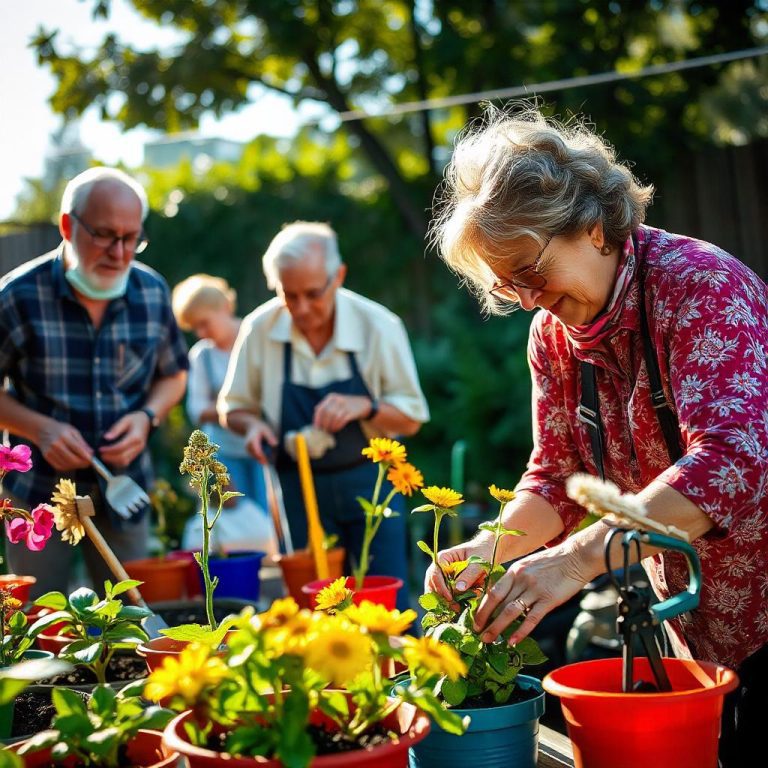Elderly home companions are specially trained professionals who provide non-medical support to seniors in the comfort of their own homes. They play a crucial role in enhancing the quality of life for elderly individuals by offering both practical assistance and emotional support. These companions help reduce isolation, promote mental and physical well-being, and ensure that seniors feel cared for and valued.
Key Roles and Responsibilities of Elderly Home Companions
1. Companionship and Social Interaction
One of the primary roles of an elderly home companion is to provide companionship. This involves:
- Engaging in Conversation: Companions spend time talking with seniors, providing a sense of connection and alleviating loneliness.
- Participating in Activities: Helping seniors engage in hobbies and activities they enjoy, such as reading, arts and crafts, puzzles, or games.
- Accompanying on Outings: Joining seniors for trips to the grocery store, appointments, or social events, ensuring they have social engagement outside the home.
- Memory and Cognitive Support: Engaging in exercises to help stimulate the mind, such as storytelling, playing memory games, or doing mental exercises together.
2. Assistance with Daily Activities
While elderly companions are not trained to provide medical care, they assist with activities of daily living (ADLs), including:
- Personal Care Support: Assisting with tasks like dressing, bathing, and grooming, which can become difficult for seniors due to mobility challenges or physical limitations.
- Meal Preparation: Preparing nutritious meals tailored to dietary preferences or restrictions, ensuring seniors receive balanced nutrition.
- Household Help: Light housekeeping tasks such as cleaning, laundry, and organizing to help maintain a safe and tidy environment.
3. Emotional Support and Wellness
In addition to offering physical assistance, elderly companions provide emotional support that can significantly improve the well-being of seniors. This includes:
- Building Emotional Bonds: Providing consistent care and forming a trusting relationship, which offers comfort and security.
- Reducing Anxiety and Depression: Many seniors experience feelings of sadness, anxiety, or depression due to isolation or health challenges. Companions offer companionship that helps alleviate these emotions.
- Encouraging Socialization: Companions encourage seniors to interact with others, whether through community events, virtual connections with family, or social gatherings.
4. Encouraging Physical Activity
Elderly home companions can help seniors stay active by:
- Supporting Exercise Routines: Helping seniors with gentle exercises, such as stretching, walking, or other mobility activities to maintain physical health.
- Promoting Movement: Encouraging seniors to move around regularly to reduce the risk of joint stiffness, muscle weakness, and falls.
- Assisting with Mobility: Providing physical support as needed, such as helping seniors move from one place to another or ensuring safe walking.
5. Monitoring Health and Safety
While companions do not provide medical care, they play an important role in monitoring a senior’s health and ensuring their safety:
- Observing Health Changes: Companions can notice changes in a senior’s behavior, mood, or physical condition and inform family members or medical professionals when necessary.
- Preventing Fall Risks: Ensuring that the home environment is safe by reducing fall risks, such as keeping walkways clear, arranging furniture for easy access, and ensuring proper lighting.
- Medication Reminders: Helping seniors keep track of their medication schedules and reminding them to take their prescribed medicines on time.
Benefits of Elderly Home Companions
- Reduced Loneliness and Isolation
Loneliness is a significant concern for many seniors, particularly those who live alone or have limited family visits. Elderly home companions provide regular companionship, helping to foster meaningful interactions that improve emotional health. - Improved Mental Health
By providing consistent social engagement and emotional support, companions help reduce feelings of depression, anxiety, and boredom, contributing to better mental health and well-being. - Enhanced Quality of Life
With help from companions, seniors can continue to live independently while receiving the support they need for daily activities. This results in a higher quality of life and greater satisfaction in their living environment. - Promotes Family Peace of Mind
Family members often worry about the safety and well-being of their elderly relatives. Knowing that a trained and compassionate companion is providing regular care can alleviate these concerns and allow families to focus on other aspects of their lives. - Encourages Independence
Home companions are trained to encourage seniors to perform tasks on their own whenever possible, promoting a sense of independence and self-esteem.
Selecting the Right Elderly Home Companion
When choosing an elderly home companion, it’s important to consider the following factors:
- Experience and Training: Look for companions with a background in elder care or those who have received training in senior care, communication, and basic first aid.
- Compatibility: The companion should be a good fit for the senior’s personality, preferences, and lifestyle to ensure a positive, engaging relationship.
- References and Reputation: Choose a companion through a reputable agency or with solid references from previous families to ensure trustworthiness and reliability.
- Flexibility: It is beneficial to have a companion who can adapt to the changing needs of the senior as their care requirements evolve over time.
Who Benefits from Elderly Home Companions?
Elderly home companions can benefit a wide range of individuals, including:
- Seniors who live alone and seek regular social interaction.
- Elderly individuals recovering from illness or surgery who need assistance with daily tasks.
- Seniors with mild to moderate cognitive decline or early stages of dementia.
- Family caregivers who need respite care or support in managing caregiving responsibilities.






